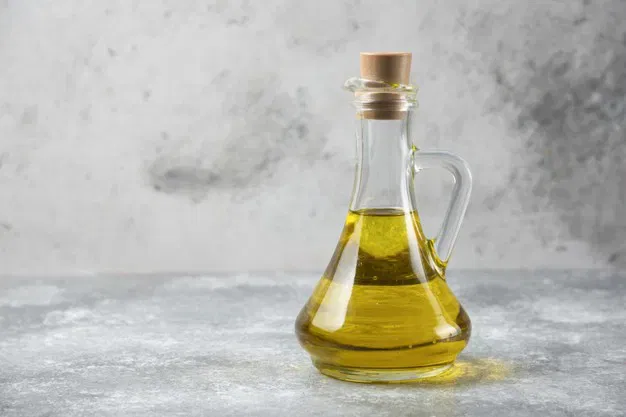Ever wondered why people use coldpressed oil or ghee during Ayudha Pooja and Vijayadashami? Maybe…
Cold Pressed Oils Are The Best Alternative For Refined Oils!

India, our country is known for our varied culture and it’s food. Oil and spices are the inevitable ingredients of our food. We use oils not only in cooking, also for bathing, pooja and medicines.
In accordance to our topographical and geographical factors and features, our ancestors used cold pressed oils which contributed a lot for great taste and good health.
In recent decades, due to improper information and rumours, we avoided these oils and switched to refined oils assuming refined oils will never cause any harm to our health and lifestyle. Our tongue is the best tester and judge.
Don’t we all still long for our traditional vada, bonda, pappad or appalaam fried in coconut oil, groundnut oil or sesame oil??
Don’t we long for sweets made out of pure homemade ghee ?? Food is something which we don’t get bored about and we continue to love.
Food is something through which we share our love, forget our hatredness. Why do we have to believe on new fancy facts when our ancestors showed the right life style and usage of ingredients by living for longer years happily.
…..
About Standard Cold-pressed Oil

Standard Cold pressed oils not only give taste, but also have lot of nutrients and controls our body heat and enhances our stamina.
The very basic logic behind usage of cold pressed oils such as Cold Pressed Coconut Oil and Cold Pressed Sesame Oil before we do head bath is they reduce heat from our body.
We can’t change our climate or weather. Thereby our ancestors showed how to tackle it and live life. No refined oil gives authentic taste and satisfaction and can’t be used for bath too.
In our pooja or while we worship, we use cold pressed oils in lamps (Deepam) and these are used because the aroma of the oils itself create an instant optimistic vibration and enhances for our health.
In Ayurveda, we are adviced to mix the medicinal powders (choornam) in to pure homemade ghee and have, simply because ghee is absolutely important for our life in terms of nutrition.
We started avoiding these nutritious oils from our life after learning a word called cholesterol.
In reality, we also need cholesterol to live. That’s, we need good cholesterol to live our life and stay healthy which is present in these cold pressed oil.
Therefore, stop sacrificing yummy food, good health and start living an Eco-friendly life. Get the best quality cold pressed oils here!







